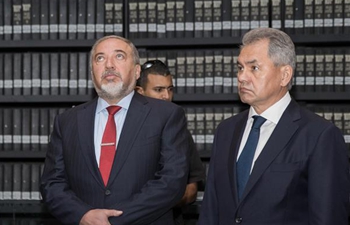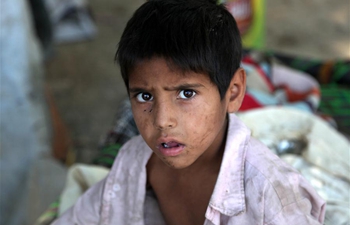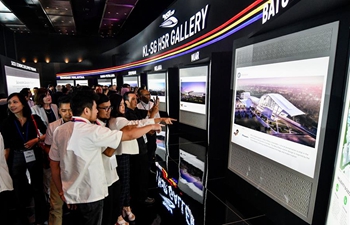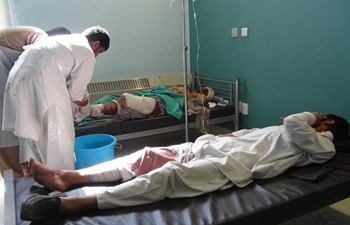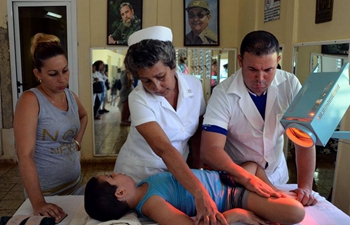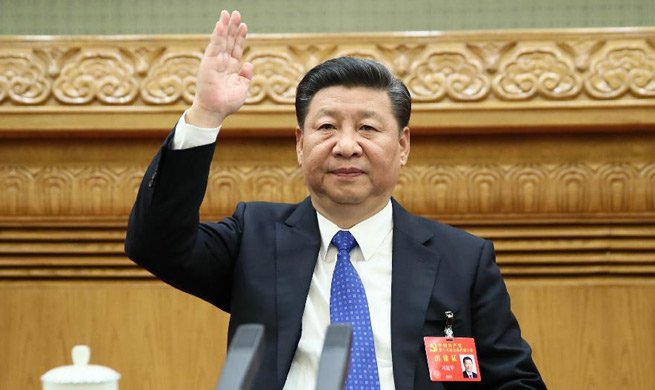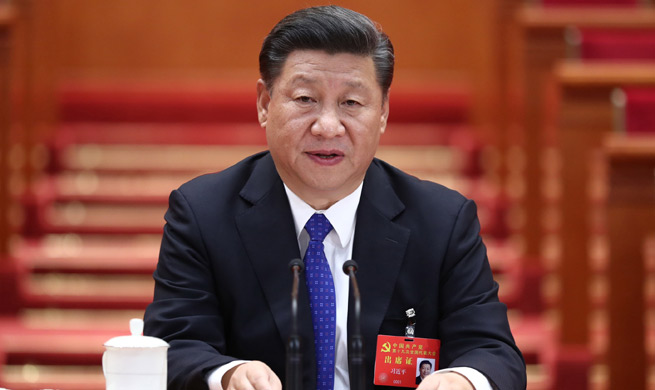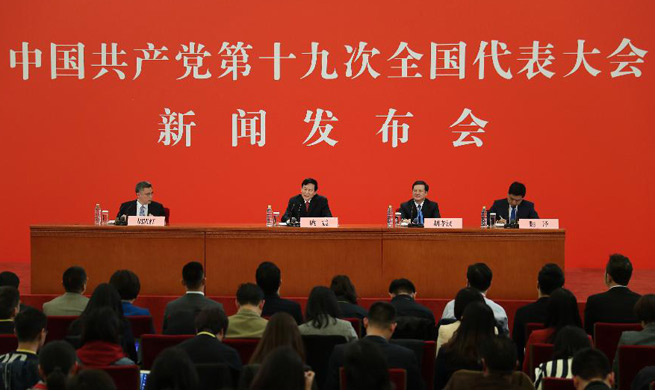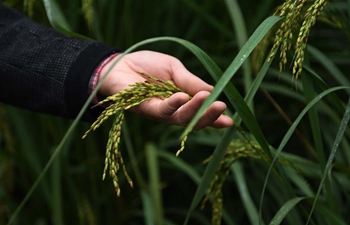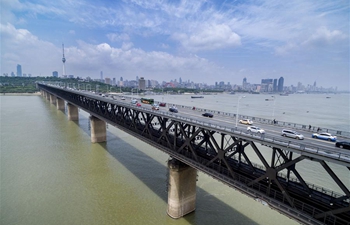by Hummam Sheikh Ali
DAMASCUS, Oct. 17 (Xinhua) -- The defeat of the Islamic State (IS) group in its main stronghold in Syria's Raqqa province has dealt a strong blow to terrorism in Syria and the region, analysts said.
The IS has lost its de facto capital of Raqqa to the U.S.-backed Syrian Democratic Forces (SDF) on Tuesday, the first major defeat to the terror-designated group in the heartland of its control in northern Syria since its self-styled caliphate announced in 2014 in Syria.
Talal Silo, the spokesman of the SDF, told Xinhua on Tuesday that the military operations against the IS in Raqqa have ended, adding that the city is liberated from the IS, but the SDF forces are mopping up the city in search of possible sleeper cells and mines.
Finally, gone are the days of the beheading and the gruesome killings on cameras, as the IS militants are now running for their lives, whether following their downfall in Raqqa, or in the eastern province of Deir al-Zour, where the Syrian army and allied fighters are advancing.
By losing Raqqa, the IS has tasted the bitterness of loss, and sure this big defeat has mentally affected the group's coherence.
Hmaidi Abdullah, a Syrian political analyst, told Xinhua that defeating the IS in Raqqa is positive, regardless of who made this victory.
"Without a doubt, liberating Raqqa from Daesh constitutes a big blow to the terrorist groups, in terms of their actual existence," he told Xinhua, using the Arabic acronym for the IS.
Abdullah also pointed out to the defeats the IS militants are suffering in Deir al-Zour by the hands of the Syrian government forces and their Iranian-backed allies.
"The battles of Deir al-Zour, more specifically in the city of Bukama in that province's countryside, will be the last offensive against the IS, as it's their last stronghold in Syria," he said.
The importance of Deir al-Zour militarily is its proximity to Iraq, where the Iraqi forces are closing in on the IS in areas under their control on the Iraqi-Syrian border.
"If the Iraqi army moves in against the IS in the border region, the battle in Syria will take hours before the IS is completely defeated," Abdullah noted.
After ending the IS in Deir al-Zour, the group will be completely eradicated in Syria, and the focus will be shifted toward the al-Qaida-linked Nusra Front, the second terror-designated group in Syria, which is largely based in the northwestern province of Idlib, Abdullah added.
He noted that the situation between the U.S.-backed SDF, which is an alliance of Kurds, Arabs and Assyrian fighters led by the Kurdish YPG group, and the Russian-backed Syrian army will be discussed in terms of the areas under the SDF control in northern Syria.
He expected that the situation between both sides will be discussed politically, as the SDF and the Kurdish fighters, in general, are fighting to establish a federal rule in northern Syria, a matter Damascus said negotiable.
Osama Danura, another political analyst and a former member of the government delegation to the intra-Syrian talks in Geneva, said that the U.S.-Russian understandings will identify the fate of the region in the post-IS era.
The analyst noted that driving out the IS from Raqqa and their near defeat in Deir al-Zour is "an important moment and will determine what happens next."
"The situation will either escalate or move toward solution between the parties in the eastern region, or it will be shifted toward ending Nusra in Idlib," he said.
But Anas Joudeh, the head of the Nation Building Movement, didn't expect an escalation between the SDF and the Syrian army.
He told Xinhua he didn't see any confrontation between both sides, at least in the near future, noting that neither sides want such confrontation, nor their backers.
While considering the defeat of the IS in Raqqa as "positive," Joudeh said that the end of the IS in Raqqa or even in Deir al-Zour comes in the natural context of the U.S.-Russian understanding.
He said the defeat of the IS was expected, and not surprising.
However, Joudeh noted defeating the IS physically doesn't mean the end of the terrorist ideology.
"If we defeat the IS and didn't fight its ideology, it could re-emerge again in another shape," he said, stressing that "the most important thing to prevent the re-emergence of the IS is to reach political solution and reconciliation in Syria."




